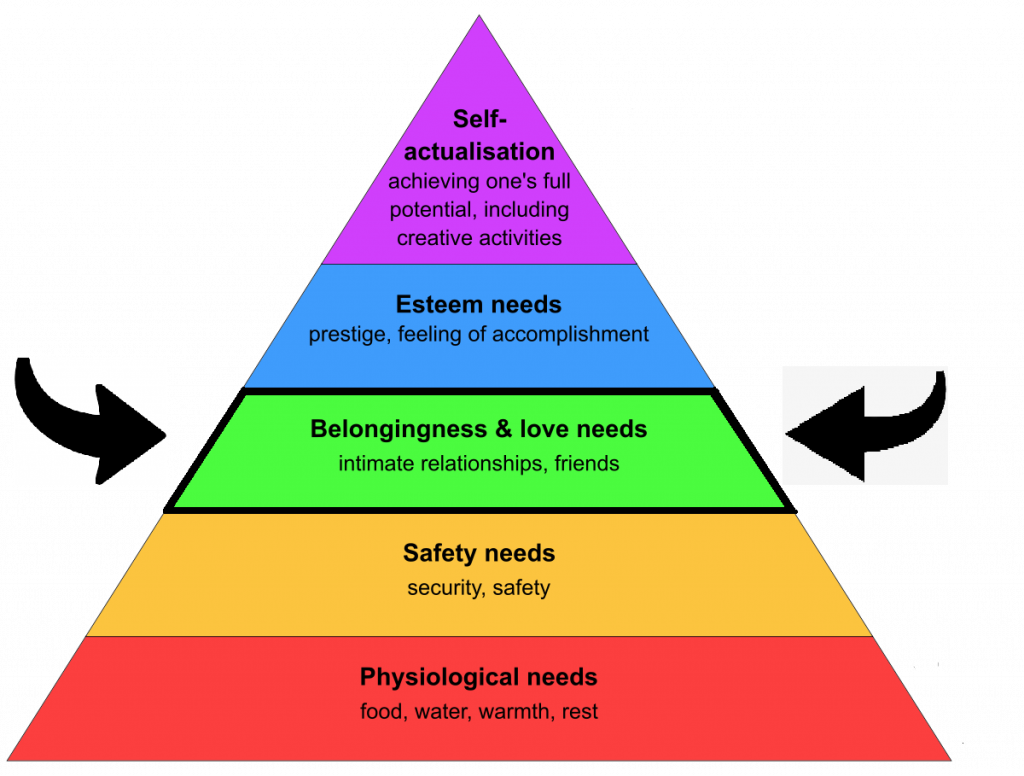The Art of Belonging

According to Maslow’s Hierarchy of Needs, Belonging is a basic human need – friendship, intimacy, trust, acceptance, affiliation, and being part of a group.
The Stress on our Mental and Physical Health
Loneliness is a silent disease.
While it’s difficult to measure the effects of loneliness, it is associated with a greater risk of:
• Cardiovascular disease, dementia, and stroke
• Mental health issues such as anxiety, depression, and in extreme cases suicide
• Alcohol and drug addiction
• The mortality impact of being socially disconnected is similar to that of obesity and smoking 15 cigarettes a day
Despite increasing options for connecting with each other (social media, dating apps, Meetups), we are becoming less connected.
More people report feeling like they are left out, poorly understood, and lacking companionship.
Over half of U.S. adults (58%) are lonely.
Source:https://www.cigna.com/static
“These mass killings are about many things – guns, demagoguery, and the rest – but they are also about social isolation and the spreading derangement of the American mind.
Whenever there’s a shooting, there’s always a lonely man who fell through the cracks of society, who lived a life of solitary disappointment, and who one day decided to try to make a blood-drenched leap from insignificance to infamy.”
-David Brooks, The Second Mountain.

According to a study conducted by the Pew Research Center, problems related to family are the primary source of loneliness. 28% of Americans reported dissatisfaction with their family life.
https://www.pewresearch.org/short-reads/2018/12/03/americans-unhappy-with-family-social-or-financial-life-are-more-likely-to-say-they-feel-lonely/
